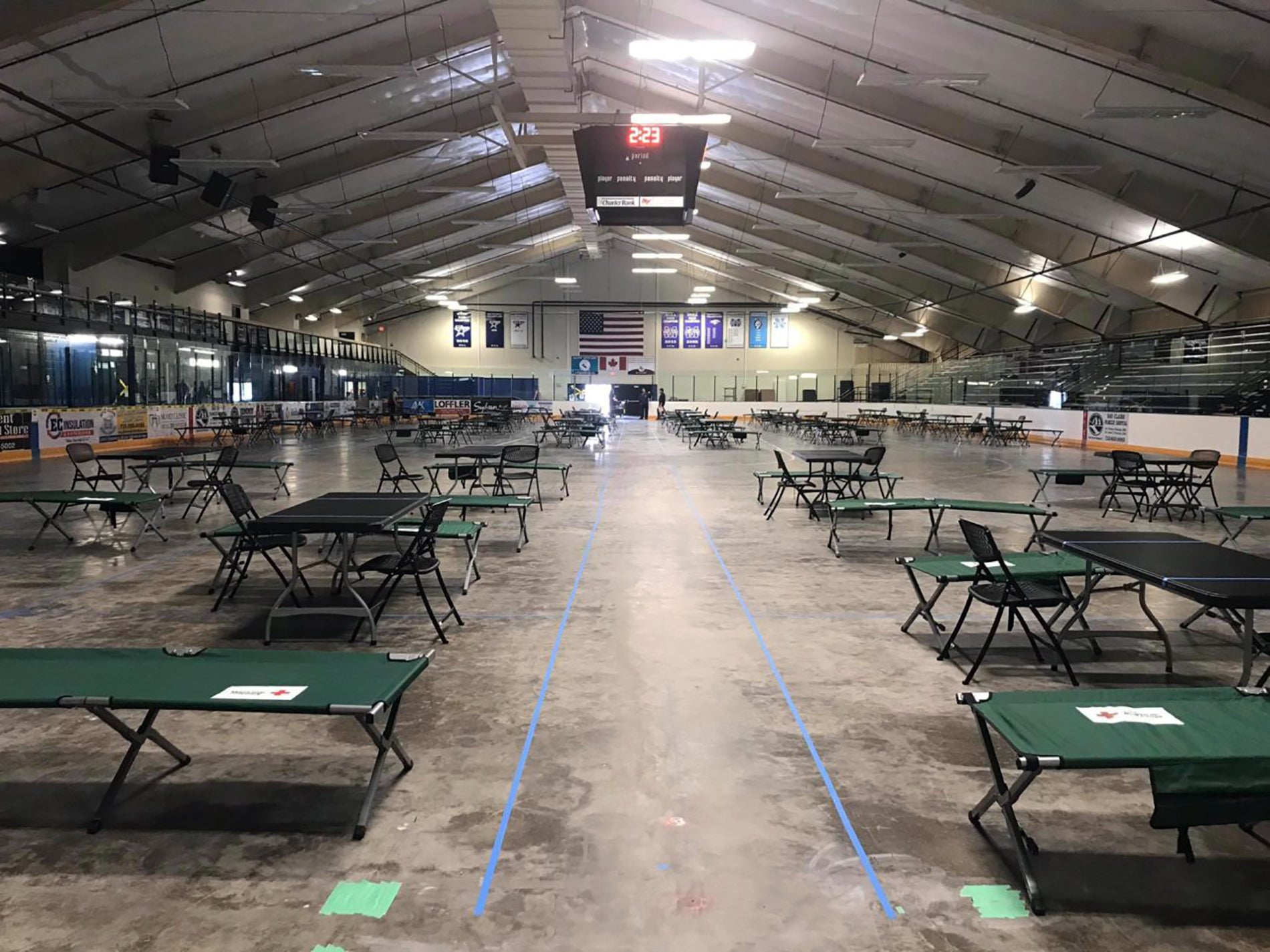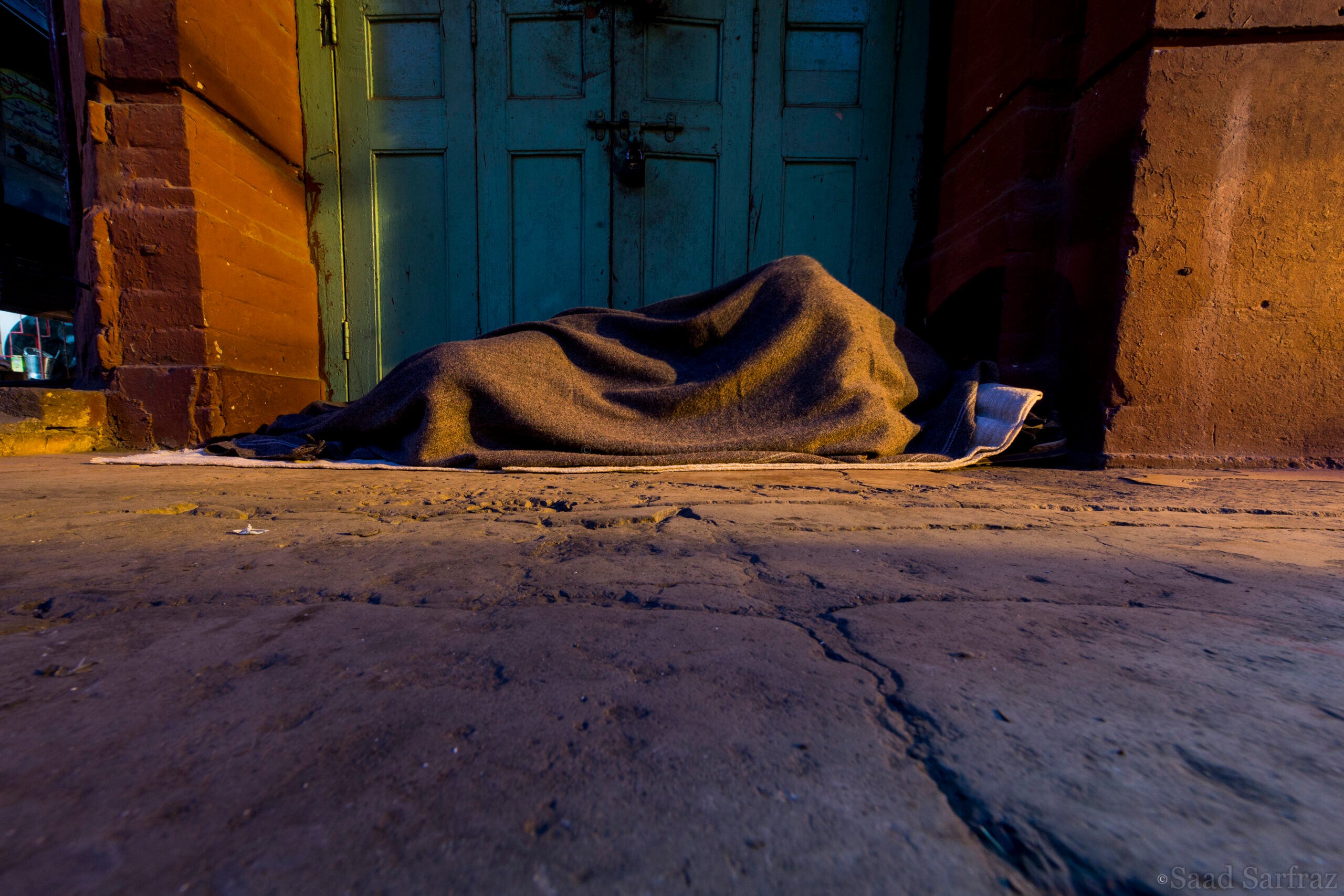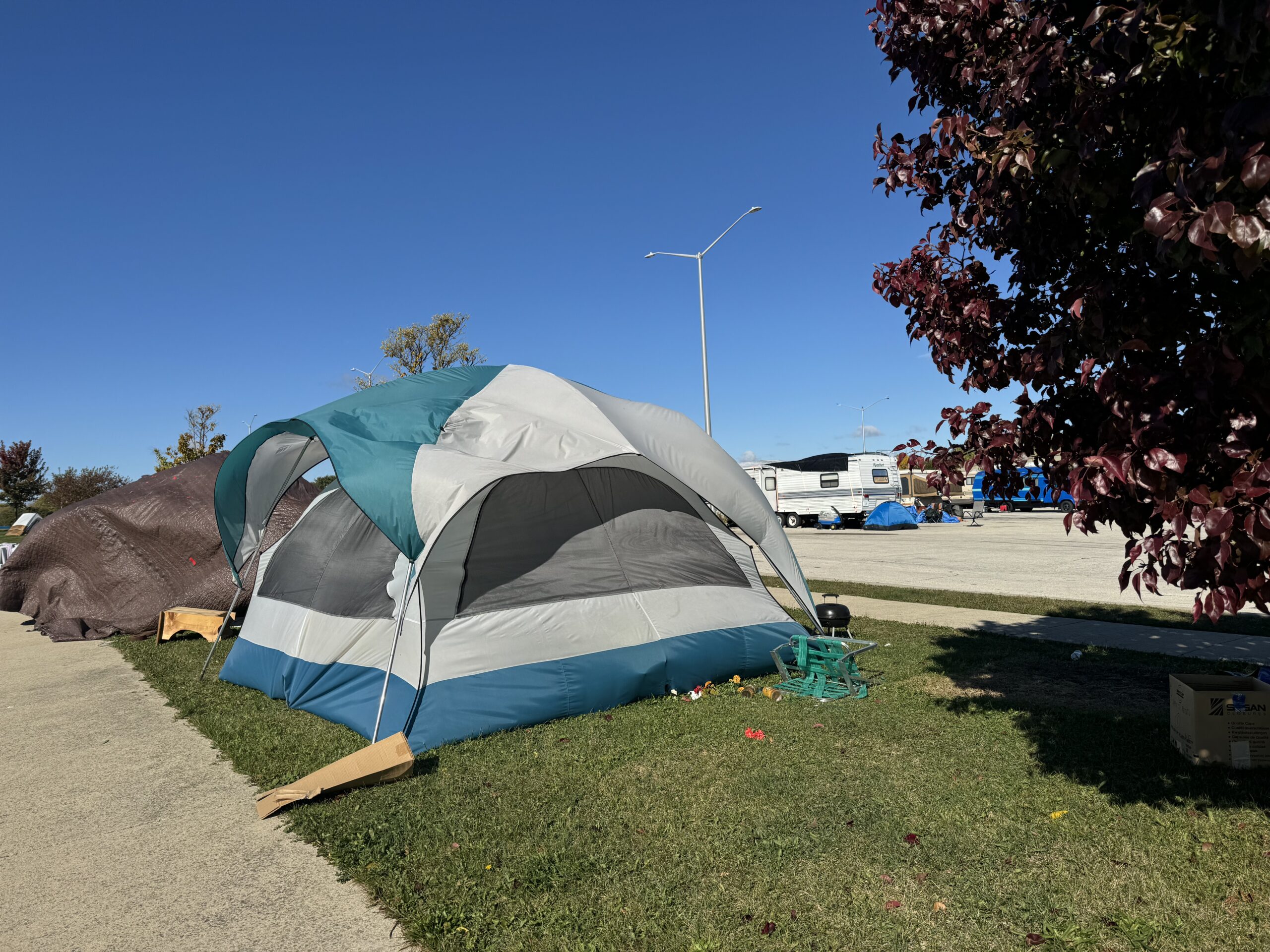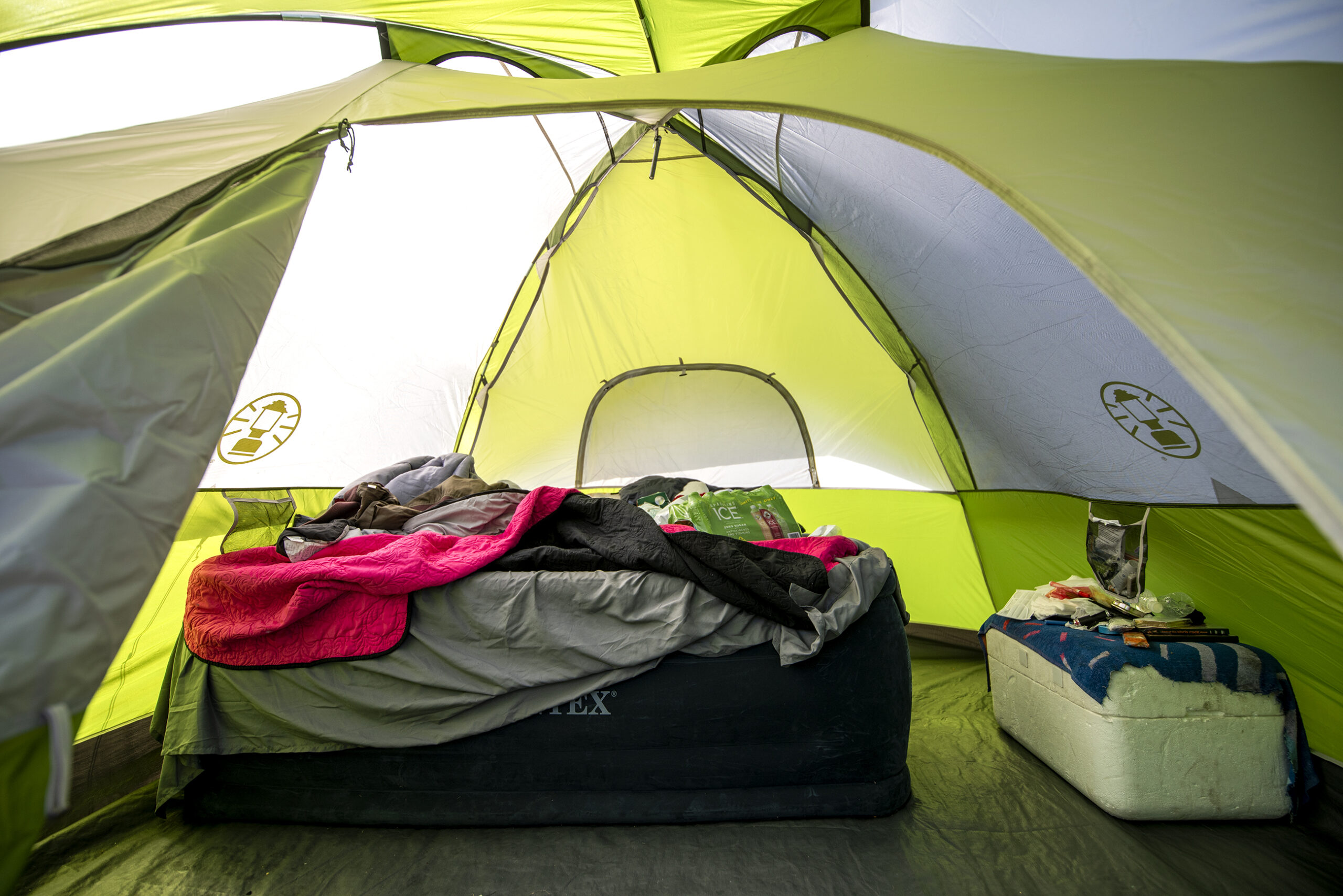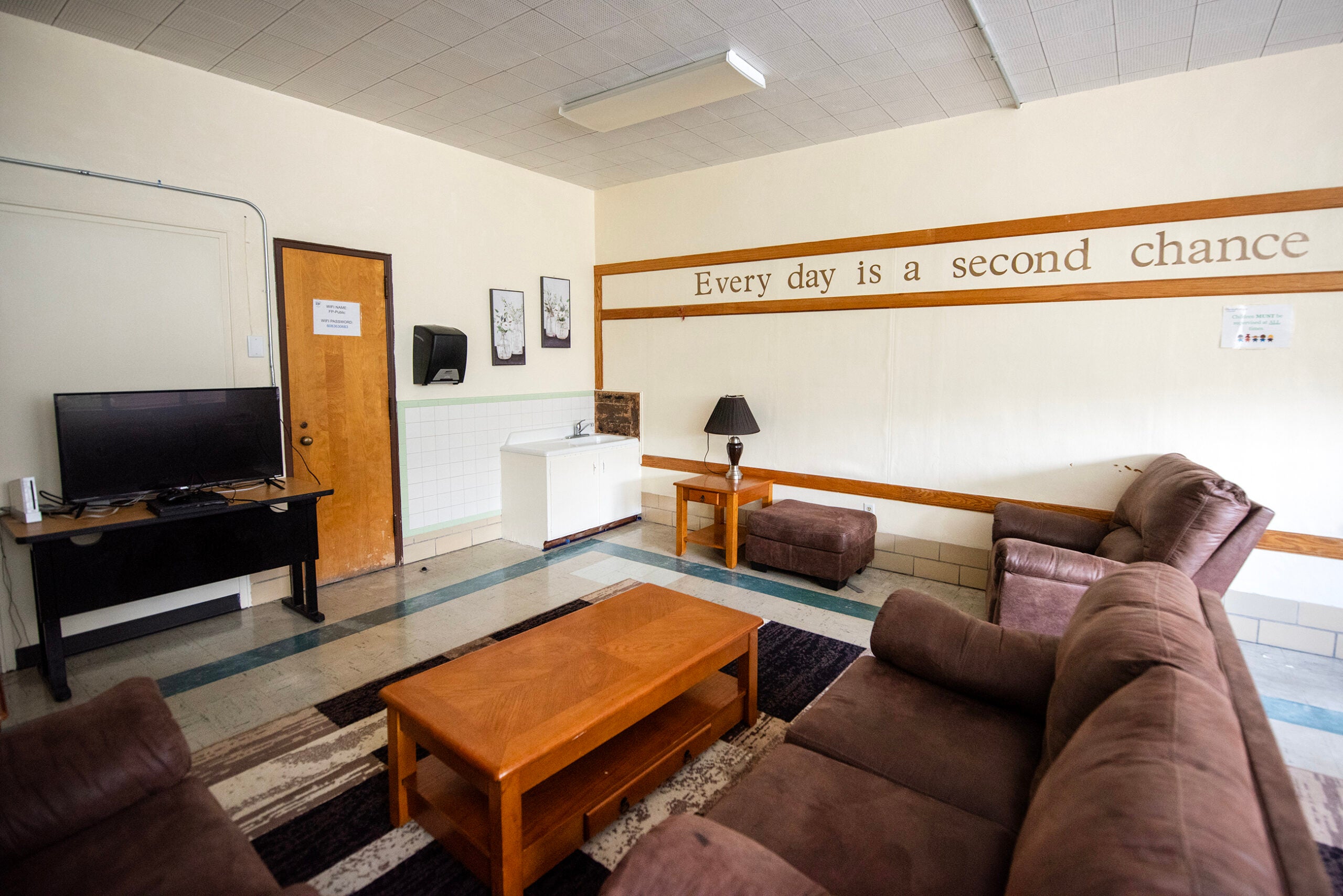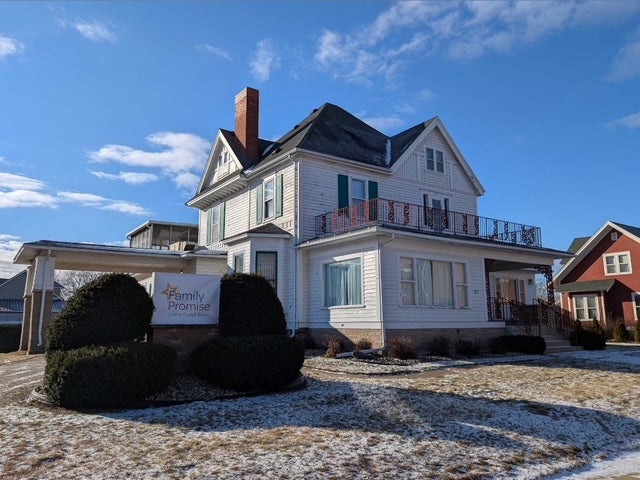Homeless shelters in Wisconsin are collaborating with local governments and each other to temporarily move into larger facilities amid the COVID-19 pandemic. Ice rinks, hotels and recreation centers are now home for some of the state’s most vulnerable populations.
The ice is gone at the Hobbs Ice Arena in Eau Claire. In its place are 70 cots for those experiencing homelessness amid the outbreak of the new coronavirus.
Brienne Berres, director of the Sojourner House, one of the city’s largest homeless shelter providers, said their existing facility about 1.5 miles away could typically hold 53 people but because of the 6-foot social distancing requirements included in Gov. Tony Evers’ safer-at-home order, there wasn’t enough room.
News with a little more humanity
WPR’s “Wisconsin Today” newsletter keeps you connected to the state you love without feeling overwhelmed. No paywall. No agenda. No corporate filter.
“Unfortunately, we aren’t able to provide social distancing, and we were looking at being faced with bringing our numbers back and reducing our capacity,” said Berres.
So Sojourner House opened additional shelter space at the ice rink.
Berres said they haven’t seen an uptick in the number of people seeking shelter services in Eau Claire, likely because of a moratorium on evictions and foreclosures through the end of April announced by President Donald Trump. She said 53 of the 70 beds are occupied. But she expects a surge of demand when the eviction order and social distancing restrictions are lifted in May.
“We are anticipating that unfortunately with the economy, what’s happening, there may be families and individuals forced into homelessness,” said Berres. “So, we’re kind of preparing ourselves for that, and I’m hiring temporary staff to make sure that if and when that happens, I have the staff to be able to support it.”
In Milwaukee, an unused nursing home for nuns owned by the Archdiocese of Milwaukee is being used as an isolation facility for those experiencing homelessness. Milwaukee County Housing Division administrator James Mathy said the goal is to provide a place for homeless individuals showing symptoms of COVID-19 and those who don’t have the disease but are at higher risk for complications due to pre-existing conditions.
“A lot of shelters are not taking new referrals,” said Mathy. “So, that’s an important point of why we thought it was important to have an isolation facility for individuals experiencing homelessness to make sure that we not have anybody in homeless shelters that is symptomatic.”
Mathy said there are currently 30 people at the former nursing home. But he said the city, county and two local hotel owners collaborated to provide an additional 100 rooms for homeless people encountered on the street. Mathy said meals are being delivered to those in hotel rooms and at the isolation facility, and city and county staff are providing housing navigation services aimed at finding more permanent housing options for them.
In Madison, the Warner Park Recreation Center has been outfitted with 92 cots for the city’s homeless population.
Karla Thennes, executive director of Porchlight Madison, which provides overnight accommodations for single men, said typically, their clients are located in three church basements in the city which were far too cramped, especially amid a pandemic.
“So, through working with the Madison city and county we closed down all three of those facilities and moved to one location at Warner Park Rec Center on the north side of Madison,” Thennes said.
Along with the sleeping accommodations at the rec center, Thennes said Dane County and the city of Madison have worked with hotels to provide 300 rooms for single people, mostly men, experiencing homelessness. She said Porchlight has seen a slight increase in the number of people they’ve served but attributes that mostly to recent unseasonably cold weather.
In Wausau, an unused YWCA facility is now housing 14 homeless individuals.
Tracy Reiger is the Wausau-based director of community homeless facilities for Catholic Charities of La Crosse. She said after social distancing rules went into effect they moved to a youth building at the city’s Marathon Park, which provided the space they needed but didn’t have showers, laundry or adequate kitchen space to serve clients. Reiger said after an agreement with the owner of the YWCA building was forged, they moved in and were able to retrofit a maintenance closet into a working shower.
Reiger said they too haven’t seen any surge in people seeking shelter services, which she attributes to the moratorium on evictions and foreclosures.
“However, I am concerned about when the order is lifted and life starts getting back to normal,” said Reiger. “Those individuals that have been behind on rent, unable to pay, how long will they have in order to get a payment plan in place or be able to afford their apartment after this is kind of all done? I worry that the disaster is actually going to happen then.”
Wisconsin Public Radio, © Copyright 2025, Board of Regents of the University of Wisconsin System and Wisconsin Educational Communications Board.

